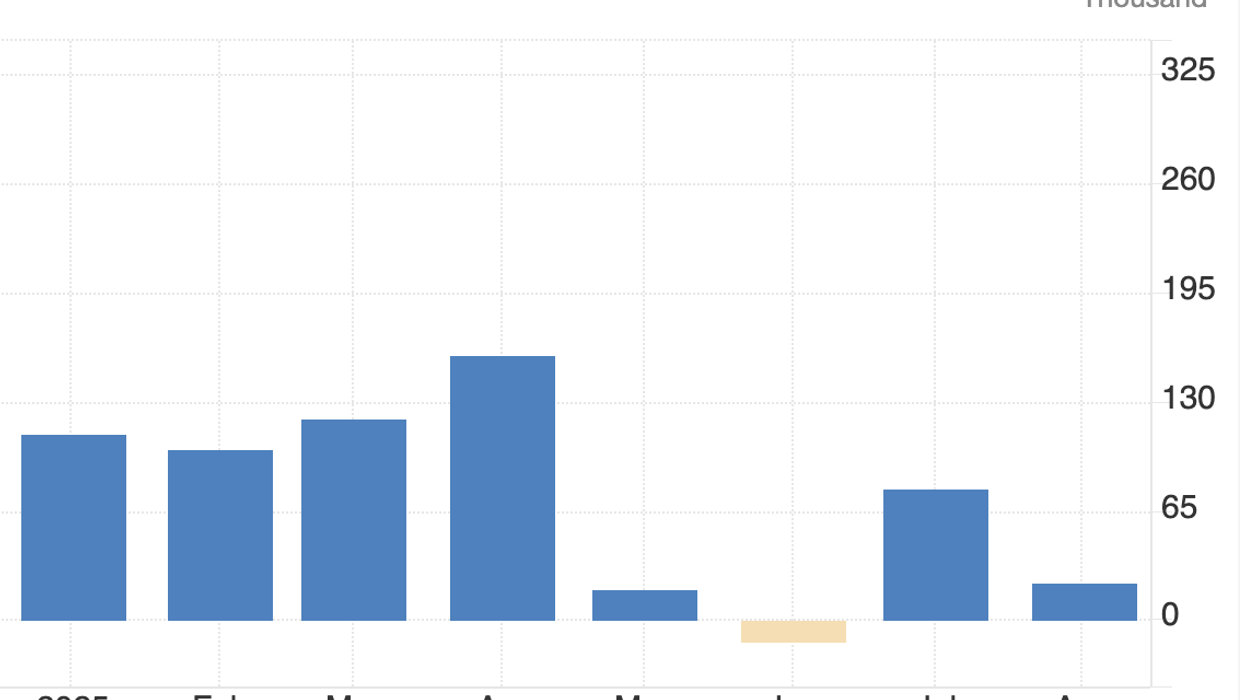Trump 's Economy Is Losing Jobs, So He Wants A New Scorekeeper
When a football team has keeps losing, the cry usually goes out for a new coach, or at least a new quarterback. Alternatively, there is the Trump route: get a new scorekeeper.
That is apparently the story, with Trump reportedly looking to overhaul the Bureau of Labor Statistics (BLS). BLS is the statistical agency that tells us how many jobs we create each month. It tells us the unemployment rate. It also tells us the inflation rate.
Trump’s import taxes (tariffs), mass deportations, and cuts to healthcare and other government programs have whacked the economy with a sledgehammer. As a result, these numbers have looked very bad in recent months. Rather than trying to address the economic problems he created, Trump is looking to ransack BLS and install lying hacks who will tell us the economy is GREAT!
We’ll probably get the specific plans this week, but Trump already fired his first shot in this battle in his war against reality last month. He fired BLS Commissioner Erika Mcfartner after a bad jobs report for July, absurdly claiming that she had somehow rigged the numbers to make him look bad. Trump’s economic team then rushed in to lie about the lie and claim Trump was concerned about inaccuracy, not rigging.
The Problem is Trump, not the Bureau of Labor Statistics
It is not the scorekeepers’ fault when the quarterback keeps throwing interceptions, but that is the way Donald Trump plays football. The stalling economy is not a surprise to those of us who have paid close attention.
Since Trump came into office he has hit the economy with massive taxes in the form of hundreds of billions of dollars of tariffs. This is money coming out of the pockets of families and businesses. It doesn’t take an advanced degree in economics to know this will slow growth.
Making matters worse, he has imposed his tariffs like a reality TV show, promising higher tariffs or lower tariffs on some deadline, and then changing the dates and/or the threatened tariff rate. Reality TV show stars don’t have to make plans, businesses do. Ever changing tariff rates do not create a good investment climate. As a result, businesses are putting off investment and hiring decisions.
Trump’s erratic budget cuts, starting with Dark MAGA Elon and the DOGE boys, made matters worse. They cut employees and agencies in haphazard ways, both pulling money out of the economy and leaving some, like the FEMA and the FAA, ill-prepared to do their jobs. In addition, the budget cuts to healthcare in Trump’s “beautiful bill” are already forcing hospitals and other providers to lay off staff or even close altogether.
And mass deportation is preventing construction from moving forward in many areas and forcing farmers to leave crops rotting in the fields. Less output and higher prices are inevitable results.
So, a weak economy with rising unemployment and higher prices is hardly a surprise. But Trump refuses to fix or even acknowledge the problem. Instead, he reports that Putin told him the economy is booming. Trump insists the problem is with the scorekeeper.
Wrecking BLS Is Not Funny
The idea of ransacking a statistical agency, known for producing gold standard data for more than 100 years, may seem a silly concern of economics nerds, but it has very real-world consequences. It not only will make it more difficult for anyone to know how fast the economy is growing or how many jobs are being created; it makes it more difficult for businesses to operate and plan for the future. If we have statistical agencies that report the numbers Trump tells them to report, rather than what is actually happening in the economy, businesses will be cutting back investment here and looking to instead put their money in countries that don’t lie about their data.
Trump’s games with economic statistics will also affect us all directly in our pocketbooks. Social Security benefits increase each year in step with inflation, as measured by the Consumer Price Index (CPI) produced by BLS. If Trump tells his lackeys to reduce the CPI by 1.0 percentage point, that means everyone will get 1.0 percent less in their Social Security check each month.
And this impact is cumulative. If Trump orders a 1.0 percentage point reduction in the CPI every year, then after two years, Social Security benefits will be 2.0 percent lower, after three years, benefits will be 3 percent lower, and after ten years they will be 10.0 percent lower.
The CPI also affects tax brackets, which are also indexed to inflation. As a result of Trump’s gaming, tens of millions of families will find that more of their income is in a higher tax bracket, meaning they will pay more in taxes. There is real money at stake in economic data.
We Need to Deal with Reality, not Trump’s Alternative Universe
Trump’s economic policies are imposing huge costs on tens of millions of people. He will make matters much worse if he wrecks BLS and other government statistical agencies to make it harder for us to know exactly how much worse. Hiding the truth may make it easier for Trump to run around saying “GREATEST ECONOMY EVER!” but it will make life much more difficult for those not living in Trump’s circle of grift.
Dean Baker is a senior economist at the Center for Economic and Policy Research and the author of the 2016 book “Rigged: How Globalization and the Rules of the Modern Economy Were Structured to Make the Rich Richer.” A version of this column originally appeared on his Substack site.









